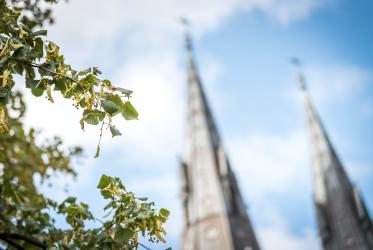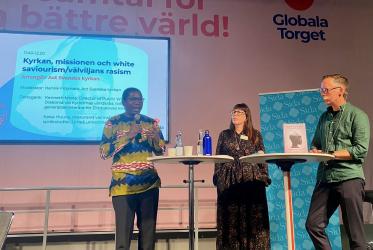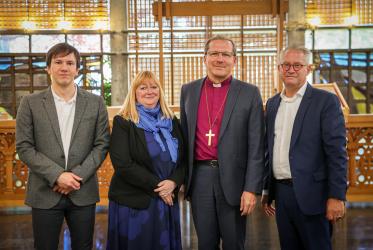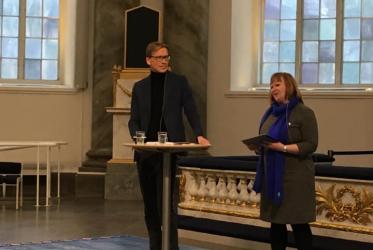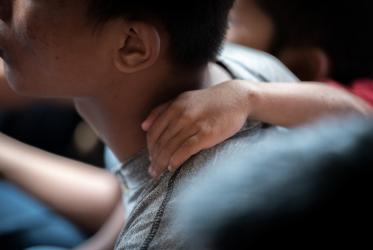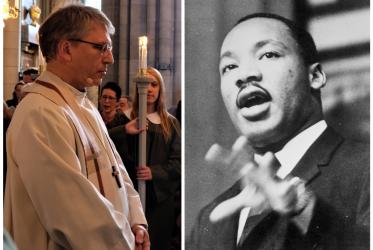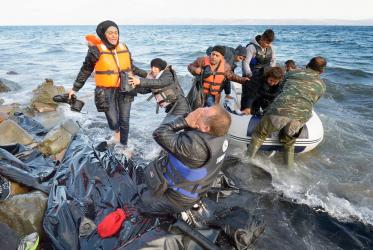Displaying 1 - 20 of 22
15 February 2024
WCC hosts visitors from Finland, Germany, and Sweden
29 September 2023
Uppsala 1968: The times, they were a’changing
06 September 2022
Church of Sweden publicly apologises for abuse of Sámi people
26 November 2021
Ecumenism is a sense of belonging
08 February 2019
WCC Executive Committee envisions future for one ecumenical movement
08 November 2018
WCC encourages churches’ work with migrants, refugees
07 November 2018
Looking back and ahead
31 October 2018
WCC president for Europe: “Develop local dialogue”
22 October 2018
The year that shook the world: 1968 in retrospect
18 October 2018
World conference on xenophobia, racism, and populist nationalism in the context of global migration
18 - 20 September 2018
Ergife Palace Hotel, via Aurelia 619, Rome, Italy
Trying to do good for the world
18 December 2017
WCC, Vatican confront xenophobia, populism and racism
16 December 2017
